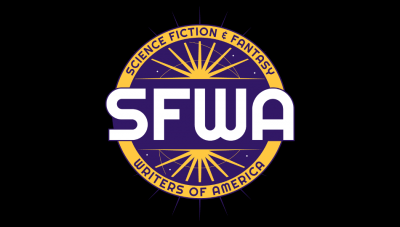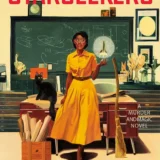Why You Never “Sell” a Story: Understanding rights and licensing
Welcome back. This is the fourth in my weekly series of posts on how to market and sell short fiction. You can check out my earlier posts here.
This week I’ll be dealing with one of the most important topics in the series: understanding the licensing of rights. This will not be an exhaustive discussion, but rather just the basics, just enough for you to understand how very important this topic is to you and your writing career. Even as an overview, this is a big topic, so I’m splitting it into two posts.
Before I start, I’ll steal a favourite quote from a writing mentor of mine, the multi-award winning, multi-genre writer, Kristine Kathryn Rusch, who likes to preface any quasi-legal advice that she gives on her blog with “I am not a lawyer nor do I play one on TV.” You need to do your own research on this topic (and do it early in your career), and if in doubt, get advice from a pro writer or an intellectual property lawyer. Having said that, for short fiction contracts (which I’ll deal with in a future post), I’ve never needed to consult a lawyer (novel contracts, of course, are a different matter). To better understand rights and licensing, I’ll recommend that you purchase “The Copyright Handbook” (Nolo Press), which is updated every year (so don’t buy it used). It will take you a few passes to get through this but if you’re planning a writing career, it will be time well spent.
While I’m mentioning Kris Rusch, I’ll also strongly recommend that you follow her weekly blog, “The Business Rusch,” as well as Dean Wesley Smith’s two blog series, “Think Like a Publisher” and “Killing the Sacred Cows of Publishing.”
Licensing and Copyright
So let’s start. First, you need to understand that you’ll never actually “sell” a story. This is not my prediction on your likelihood of success in a writing career. It means that when your first “sale” occurs, you will not actually be selling anything. Rather, you’ll be licensing a very particular set of rights related to that story to another party in the person of that publisher.
Some comments on copyright: when you write your story, its copyright is automatically protected. You don’t have to register your copyright (file with your particular government) to protect it (a recommended exception: if you’re sending anything to Hollywood, you should formally register copyright. You’re still protected if you don’t, but it will make proving your copyright easier in any subsequent lawsuit in the event of theft of copyright, something that is much more prevalent in Hollywood).
Note that the idea in your story is not protected by copyright. Copyright protects the manuscript: the form of the story–the sentence structure, how the words appear. In the US, copyright remains in place for seventy years after your death. If you want to protect it beyond that, check out some of Kris’s posts on estate planning for writers. There are exceptions to copyright law, and the most common that applies to writers is “fair use,” but those exceptions are beyond the scope of this article.
Let’s talk about rights. Okay, so you’ve written a story. The first thing to understand is that you hold multiple rights on that story, rights that you may license (or choose not to) for money (or not) to a third party. These rights have several dimensions: media (form of presentation or use), language, occurrence, geography, and time. These all combine into the particular set of rights that you’ll license for any story “sale.” I’ll go through each of these.
Media Rights
I’m using media here to refer to the format or form in which your story appears. The most common forms that you’ll encounter cover the most common methods of presenting your words in the various short fiction markets: print, electronic (web or ebook), and audio formats. For each of those forms, there are two common types of short fiction markets: anthologies and magazines. So, for example, you might be selling your story to a print magazine or an audio anthology, or a magazine or anthology that will publish both print and ebook editions.
A magazine is any serial publication that has a recurring publication schedule, issue numbers, and usually an ISSN (International Standard Serial Number, versus an ISBN for a book). When you license rights to a magazine, you are selling serial rights. An anthology is a book-length work containing short stories from different authors (not to be confused with a collection, which is a book-length work of short stories from a single author). You license anthology rights to an anthology (duh).
For the purposes of this post, I’m also using “media” to refer to other formats that your story, or your story world and its characters, could be presented in or adapted to, beyond the straight-forward presentation of your words as you’ve written them. These other formats include film, games, comics, graphic novels, products (think Star Wars action figures), and more, and all of these formats can have separate rights associated with them. The possibilities are limited only by the imagination of a marketing department or yourself.
Language Rights
Language rights are easy to understand, but are often too easily (or blindly) given away by beginners. Most short fiction markets will just be looking for rights in one language, the language in which they publish, and to start, newbies should only be submitting to English language markets (I’ll write more on selling to foreign language markets later in this series). However, some top professional English magazines legitimately ask for non-English rights as well, as they have standing agreements with foreign language magazines for those publications to translate any story that appears in the English pro market.
Occurrence Rights
These relate to whether you are licensing first rights or second rights. You can sell first rights for a particular media and language only once–the very first time you sell your story (again, duh). Any subsequent time that you sell that story, you’ll be licensing second rights, commonly referred to as selling the story as a reprint. As you’ll learn, most professional markets will not accept reprints; that is, they will only be purchasing first rights.
Critical for you to understand is that the use of first and second rights applies to a specific media and language. For example, I can license first print rights in English for a story to an English print anthology publisher, and still be able to license first audio rights in English for that same story to an audio book publisher, or first electronic rights in French to a French ebook publisher.
Geographic Rights
Another easy one to understand, and also one that is getting simpler as electronic editions (eBook, web, audio) of anthologies and magazines become more common for most short fiction markets.
Before the growth of electronic markets, you would typically be licensing geographically constrained rights. For example, a print magazine that was physically distributed only in Canada would ask for First Canadian Serial Rights in English. A US magazine might have asked for First North American Serial Rights in English. An English language anthology with plans to sell overseas would have asked for World Anthology Rights in English.
Today, any market that includes an electronic version of their publication will now be asking for World Rights in their particular language. Note that if a market asks for World Serial Rights or World Anthology Rights without specifying any language, they are asking for all languages. More on this in the contracts post later in this series.
To Be Continued…
Next week, I’ll finish off this brief overview of licensing and rights by covering the remaining dimension of rights: Time, and the all-important issue of ensuring that your rights will revert to you. I’ll wrap this topic up by running through some examples of the typical requests for rights that you’ll encounter if you sell to the most common short fiction markets.
Next week: Why You Never “Sell” a Story: Understanding licensing and rights (the conclusion)
As always, please feel free to add comments and questions, and I’ll respond as best (and as soon as) I can.
~~~~~
PLAYING THE SHORT GAME — The Book!
I am thrilled to announce that I have now repackaged the 32 separate posts that make up this blog series into a book titled Playing the Short Game: How to Market & Sell Short Fiction. The book is completely updated and reorganized, with new material not in this blog series, plus an introduction from multi-genre, multi-award winning writer and editor, Kristine Kathryn Rusch. Here’s an extract from Kris’s intro:
Douglas Smith is the best person to write this book. … He’s one of the few people who has probably published more short fiction than I have, and in more countries, and more high-paying markets. He loves the short story as much as I do, and he’s good at writing them.
He’s just as good at the business side of the profession. He knows more about marketing short stories to other countries than I do. He understands how to manage short fiction contracts very well. He’s up-to-date on 21st century publishing practices, and he has a toughness that the best business people need.
We short story writers have needed a book like this for decades. I’m glad Doug decided to write it. Read and reread this volume. Because you’ll learn something each time you do. And take Doug’s advice. It’s spectacular.
—Kristine Kathryn Rusch
More information on the book, including full buying links for all major retailer sites, is available on my website here.
As a special offer to Amazing Stories readers, I’m offering discounts in my bookstore. Get the ebook or print edition at a discount by using the coupon codes AS-SHORT-E or AS-SHORT-P respectively at my website bookstore. Enjoy!
Doug is an award-winning Canadian writer whose fiction has appeared in twenty-five languages and thirty countries. His works include The Wolf at the End of the World, Chimerascope, and Impossibilia.









I know I am late to the party, but I’m glad that I stumbled upon this series as soon as I did. First, I’d like to thank you for producing such a helpful guide to the world of publishing short SF, a necessary guide for a newbie like myself.
Recently (as in, “before I read this very helpful blog”), one of my stories was published in my University’s Student Literary Art Magazine. The story appeared in print only, without pay, and was only distributed on school grounds. So, my question is whether ‘I have given up my First World English rights with this – minor – publication, and will now be doomed to shop it as a reprint?
The only thing I could dig up on the school’s website was that any and all rights revert to the author immediately upon publication. There is no mention of what rights they acquired when it was “sold.” Any insight would be appreciated!
Thanks again for this fantastic guide.
Nicholas, thanks for dropping by. Re your question, technically you’ve given up first rights with that university “sale.” In terms of what rights your university paper would have acquired, I would guess FNASR (first North American serial rights for print). Regardless, whatever they acquired could impact your ability to sell it again.
In reality, you’ll probably be okay with most first-rights-only markets if you disclose these details, something along the lines of “This story has been published before, but only in XXX copies of a university student magazine that was distributed solely on campus.” Hopefully, you’ll be able to find out the approximate number of copies that they would have printed for any issue. The smaller the university, the better.
Some markets may be okay with that, but some may not. It’s their call because as I say, you’ve really already given away first rights. Good luck with it. Worst case, you know all rights reverted to you on publication, so you can resell it. More on selling additional rights in an upcoming post (probably part 25).
Thanks so much for the reply! I believe I will be able to get the distribution numbers and, thankfully, the university is fairly small.
Looking forward to reading more of your posts!
Excellent series, Douglas. Thanks for making it available.
You're welcome. Good to see you here, Dave! Thanks for dropping by.
Wonderful series! Thank you for writing it 🙂
My question is about work-for-hire contracts. I recently did one with a good, clear contract, but what should we be looking for if we are writing short stories as part of media tie-in series, anthologies, or other work-for-hire situations?
thanks again!
Michele, you're welcome. I've never sold fiction for a work-for-hire situation and I don't know the specifics of your contract situation, but in most cases you are giving up all rights to the work. It's analogous to being an employee with a corporation, where anything you produce during your employment is legally the intellectual property of the corporation. Work-for-hire contracts generally pay quite well, but then you're giving up any future earnings potential from reselling your rights down the road.
Dean Wesley Smith would be a good person to query on this subject. He's done a lot of work-for-hire over his career and also edited and written a number of Star Trek and other media tie-in works. His web site is https://www.deanwesleysmith.com/, which includes a contact address.
I hope you cover moral rights as well. People do not seem to understand the very serious aspects of selling these rights and when I point out that CBC often takes moral rights they don't seem to care that it undermines a writer's artistic freedoms. I've pulled a poem because a magazine wanted moral rights.
I wasn't planning to cover moral rights, but let me try to add something here on the subject (and this is aimed at other readers, not you, Colleen, since I know you understand the topic).
First, there is a large difference in how moral rights are dealt with under international copyright law versus US copyright law. For example, the Canadian copyright act defines moral rights as including the following (taken from https://publications.gc.ca/site/eng/ccl/aboutCopyr…
"Right of Paternity: includes the right to claim authorship, the right to remain anonymous, or the right to use a pseudonym or pen name.
Right of Integrity: In the case of a work being adapted, modified or translated, the author/creator's right of integrity must be respected. … [An] author/creator's right to the integrity of his work is violated if the work is a distortion, mutilation or modification of the work that is prejudicial to the honor or reputation of the author/creator.
Right of Association: … [An] author/creator has the right to prevent anyone from using his work in association with a product, service, cause, or institution."
Or basically, whoever is acquiring the non-moral rights to your work doesn't get to mess up your work or associate your work or your name with something with which you wouldn't want to be associated.
Again, under Canadian copyright law (and I believe, under most non-US international copyright law), moral rights are personal to the author and remain with the author regardless of what other rights are licensed *unless the author waives their moral rights*. If waived, the period of the moral rights transfer is the same as the period of the other rights licensed.
However, copyright law in the US allows moral rights to be transferred along with copyright. Apparently to comply with international copyright treaties, the US added moral rights to their Copyright Act, but the definition of moral rights used is not as inclusive. In the US, moral rights provide the author the right to:
– Claim authorship for a work
– Prevent the use of the author’s name on any work not created by the author
– Prevent intentional distortion or mutilation that prejudices the authors honor or reputation
– Prevent the destruction of famous works
I'm with Colleen on this one. If a market asked for moral rights, I would not sign the contract. But again, folks, I am not a lawyer, so do your own research before signing any contract.
I sometimes think I have mental blocks in place as well, so I find I'm always rereading material. It's funny about screenplays. I've read a number of books on the crafting of screenplays and they usually reassure the reader that Hollywood doesn't steal copyrights. Too much hassle, etc., ad infinitum ad nauseum.
I've always wondered if the Writers Guild of America, West Registry was that much protection. It's $20 to register a script, and I think it's $35 for a federal copyright. But given the possible income from short stories, I have to wonder what to do. What's your take on that, Doug?
Can't help you there, Jay. I don't do screenplays (or at least, not ones that I pitch in Hollywood). My advice here is simply the restatement of what I've been told by many pro writers who've dealt with those situations.
I wish I'd found this series a long time ago. I like the encapsulated overview all in one place, though I had to read it through twice to translate the bits that just read: blah blah blah. I can't decide whether it gets more complicated over time or if I've got some serious mental blocks about my rights…
Happy to help clarify the "blah blah" bits. I had tried to avoid those! Any parts in particular?